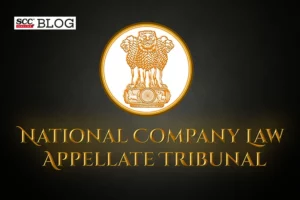National Company Law Appellate Tribunal: While deciding an application for condonation of delay, a 3-member bench comprising of Justice Ashok Bhushan, Chairperson, Mr. Barun Mitra (Technical Member) and Mr. Arun Baroka (Technical Member) dismissed the application for condonation of delay and rejected the appeal due to the failure to file within the prescribed 30-day period.
In the instant matter, an application has been filed seeking condonation of delay in filing an appeal against the impugned order dated 03-12-2020. The appellant (Operational Creditor) being aggrieved by the impugned order, filed the appeal on 01-09-2023. The appellant contended that the delay occurred because the appellant was unaware of the order until 31-07-2023, when they came to know about it.
The NCLAT acknowledged that under Section 61 of the Insolvency and Bankruptcy Code, 2016 (IBC), an appeal must be filed within 30 days from the date of the order.
The NCLAT referenced V. Nagarajan v. SKS Ispat & Power Ltd., (2022) 2 SCC 244, where the Supreme Court highlighted the deliberate omission of the provision allowing appeals from the date when a copy of the order is made available to the aggrieved party in Section 61 of the TBC.
The appellant contended that the V. Nagarajan (Supra) involved a situation where the party was present when the judgment was pronounced, whereas the appellant in this case was not present during the judgment and was not a party to the proceedings. The counsel relied on Prowess International (P) Ltd. v. Action Ispat & Power (P) Ltd., 2018 SCC OnLine NCLAT 644, where the Tribunal allowed for appeals to be filed within 30 days from the date of knowledge of the order.
However, while acknowledging the appellant’s argument, the NCLAT held that they were bound by the precedent set in V. Nagarajan (Supra) and therefore could not follow the judgment in Prowess International (Supra).
The NCLAT emphasized the importance of timelines in the IBC and stated that filing an appeal within 30 days from the date of the order is crucial for all concerned parties.
“In event, such contention is accepted, the resolution under the Code will become indefinite and uncertain, that is why timelines prescribed are important and for filing an appeal prescribed period is 30 days from the date of order.”
While rejected appellant’s contention that the limitation period should commence only from the date when they became aware of the order, the NClAT held that the limitation period should begin from the date when the order was passed, and it should not depend on when the appellant became aware of the order.
Consequently, the NCLAT ruled that the inordinate delay in filing the appeal could not be condoned, and the condonation of delay application was dismissed. As a result, the Memo of Appeal was rejected as well.
[Kalyan Dombivli Municipal Corpn. v. Reliance Infratel Ltd., 2023 SCC OnLine NCLAT 1416, order dated 04-10-2023]
Advocates who appeared in this case :
Mr. Rahul Chitnis and Mr. Samrat K. Shinde, Counsel for the Appellant

